Blockchain technology has become the core driving force behind the digital transformation of the financial industry, showcasing immense potential in application scenarios such as cross-border payments and financial innovation. In particular, stablecoins and RWA (Real World Assets) have attracted widespread attention from the global market as key areas for the implementation of blockchain technology.
To further promote industry communication and delve into the opportunities and challenges brought by the rapid development of stablecoins and RWA, an event titled "Stablecoins and RWA Driven by Blockchain: Exploring Practices in Cross-Border Trade and Financial Innovation" was successfully held in Shanghai on the afternoon of August 22. The event was organized by the Shanghai Financial Information Industry Association and the Shanghai Distributed Consensus Technology Association, co-hosted by PANews and Mankun Law Firm, with support from Mobile Payment Network and the Blockchain Technology Application Alliance.
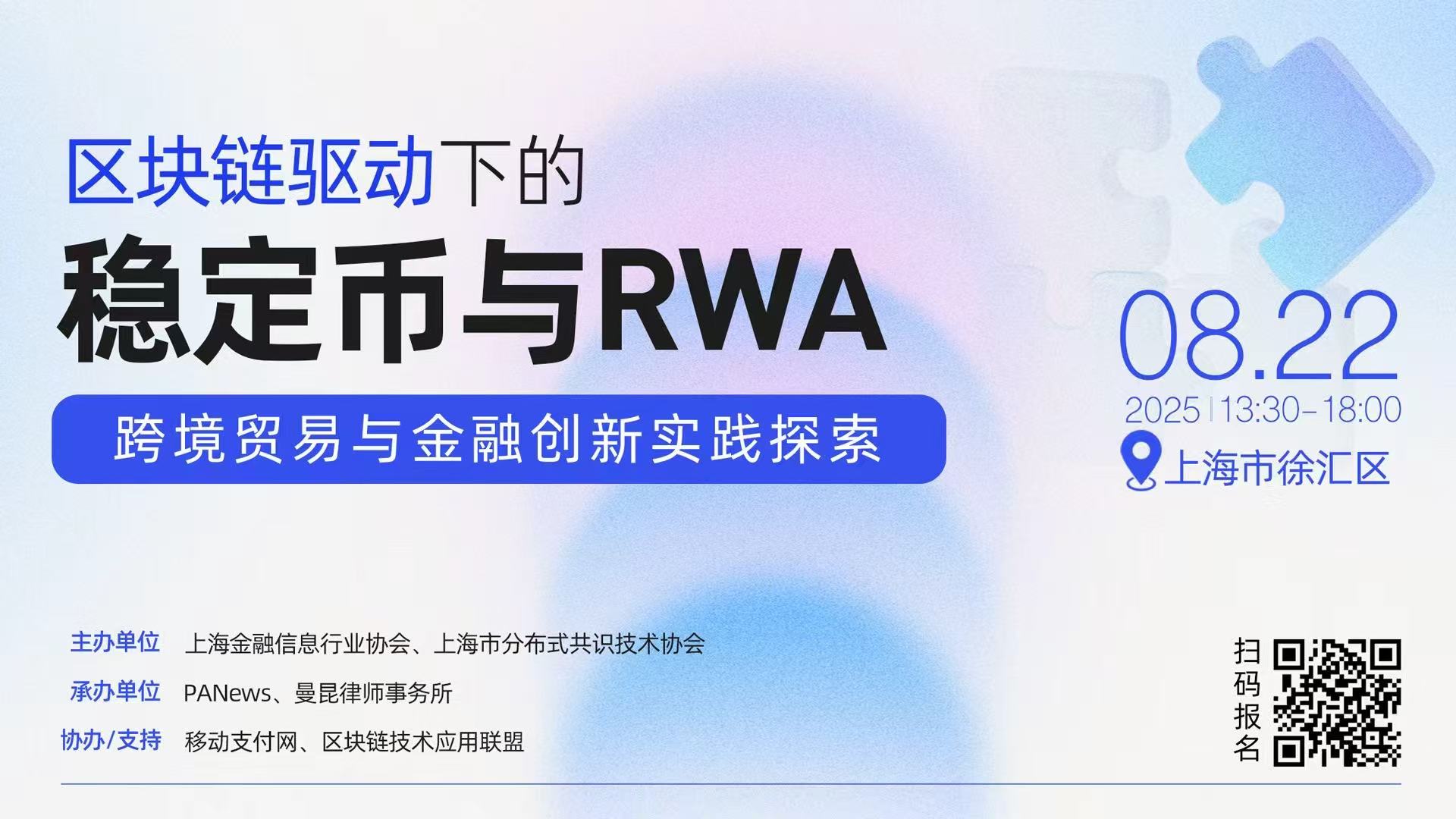 The seminar was hosted by Zang Qin, Deputy Secretary-General of the Shanghai Financial Information Industry Association, focusing on the exploration and practice of stablecoins and RWA in cross-border trade and financial compliance. It attracted over a hundred practitioners from banks, brokerages, law firms, asset management institutions, financial technology, and startups to discuss the implementation paths and future development of stablecoins and RWA.
The seminar was hosted by Zang Qin, Deputy Secretary-General of the Shanghai Financial Information Industry Association, focusing on the exploration and practice of stablecoins and RWA in cross-border trade and financial compliance. It attracted over a hundred practitioners from banks, brokerages, law firms, asset management institutions, financial technology, and startups to discuss the implementation paths and future development of stablecoins and RWA.
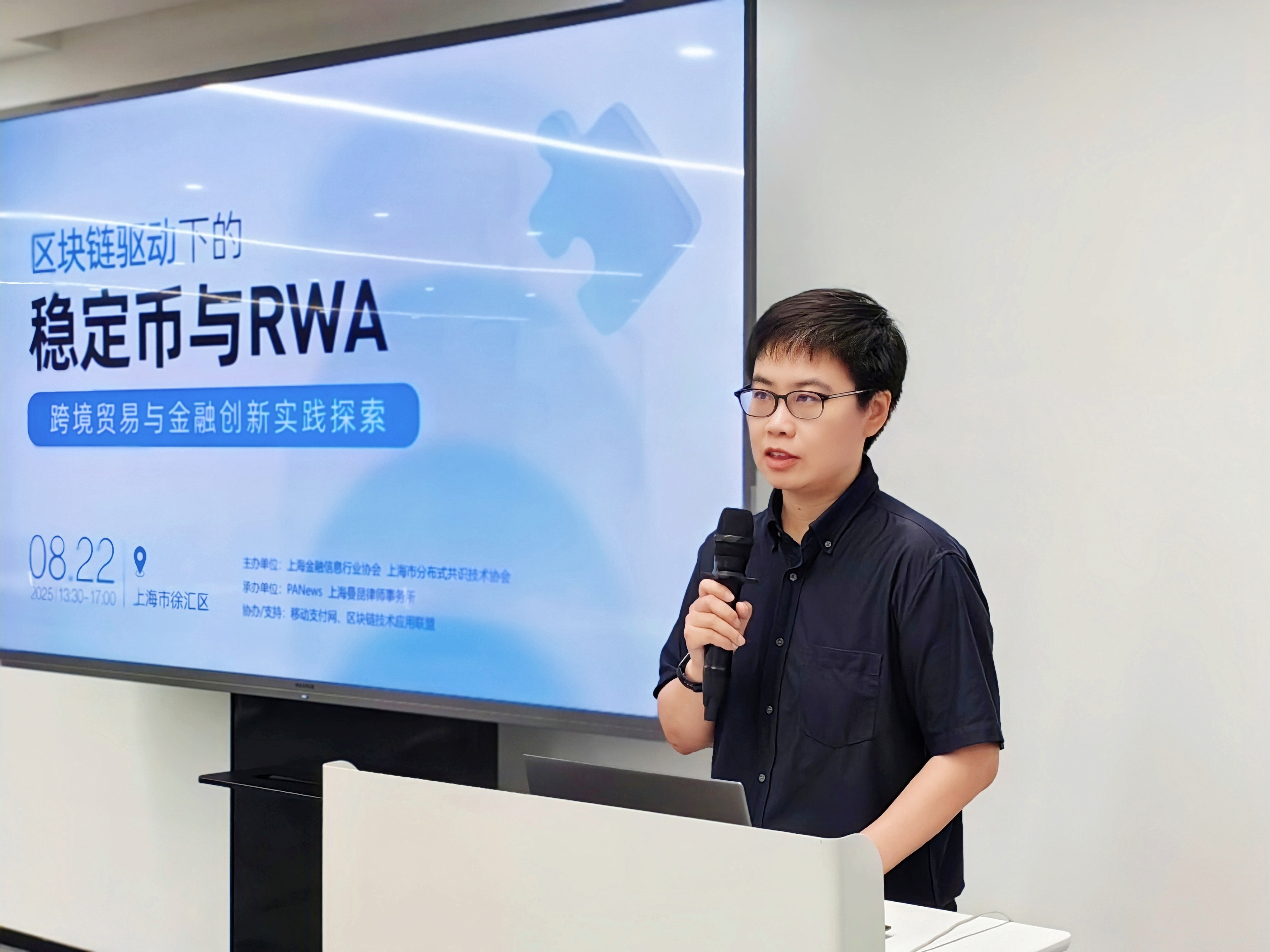
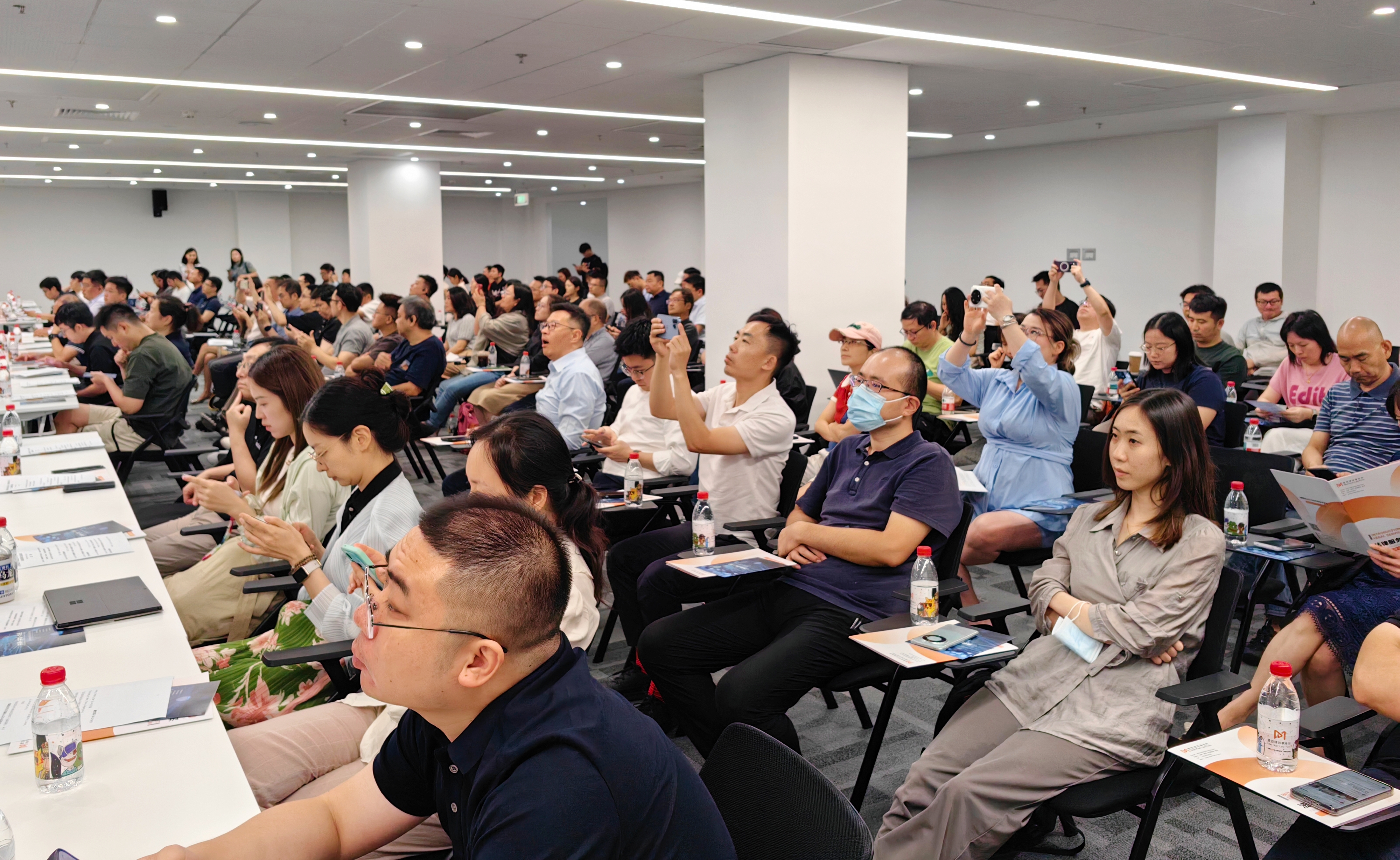
Wu Jun, Secretary-General of the Shanghai Financial Information Industry Association, delivered the opening speech on behalf of the organizers, pointing out that stablecoins are not a new concept, but their payment attributes present significant advantages in cross-border trade, characterized by efficiency and low costs. Compared to traditional financial systems, stablecoins can achieve near-instantaneous transactions with minimal fees, making them a highly promising payment tool in international trade.
However, he also emphasized that innovation must be promoted within a strict regulatory framework and compliance prerequisites to ensure transparency, allowing participants to jointly advance the stable development of digital finance with a full understanding of the risks involved.
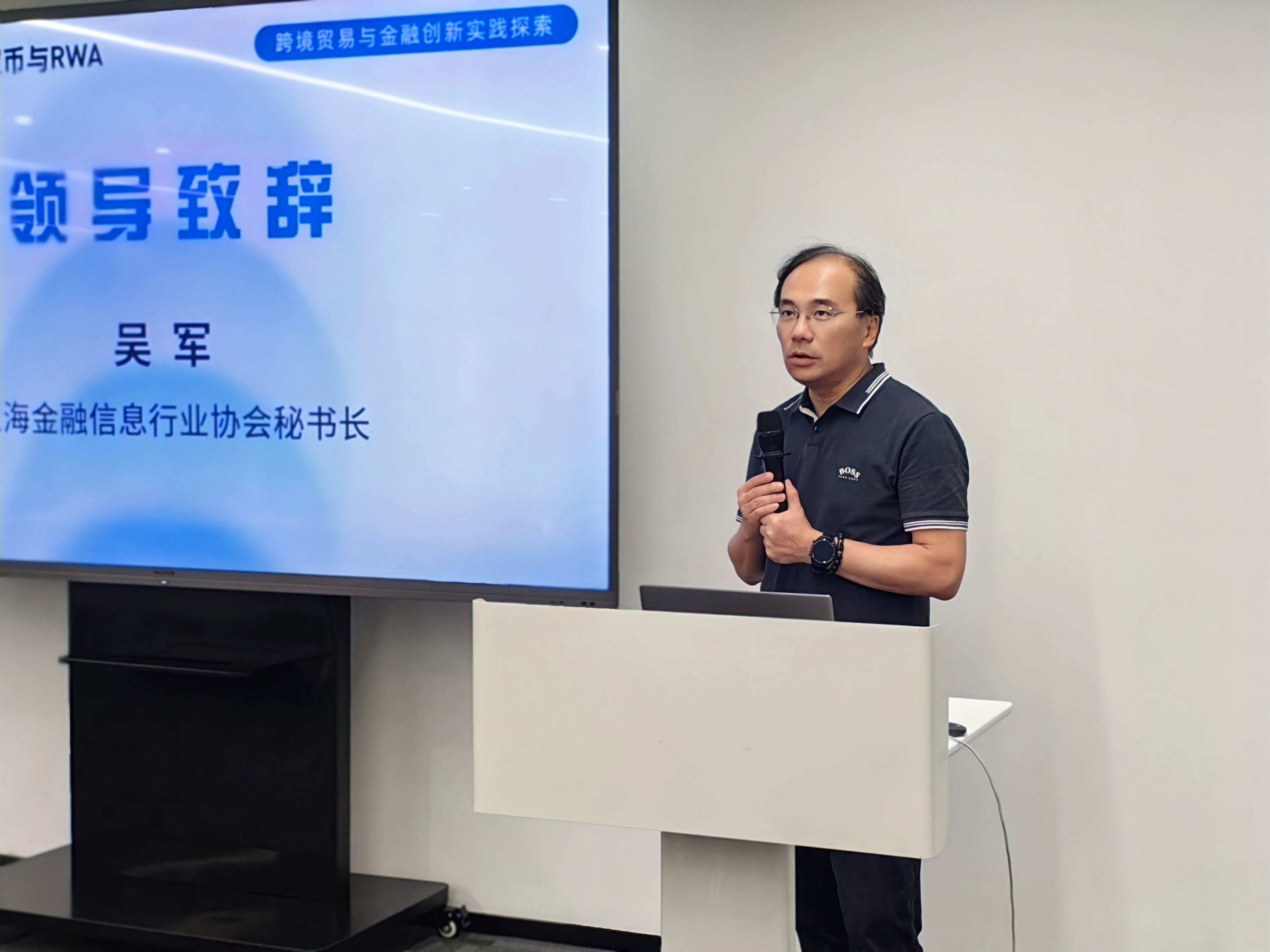
Wang Shengyu, a senior reporter at PANews, conducted an in-depth analysis of the "2025 Global Stablecoin Industry Development Report" during the report interpretation session. He pointed out that stablecoins have become one of the most critical infrastructures connecting traditional finance and the crypto market, and are changing the global financial landscape. The presentation provided a comprehensive analysis of the stablecoin industry, systematically outlining the development history, market structure, application scenarios, global regulation, development potential, and potential risks across six dimensions, combining on-chain transaction data, policy developments, and industry evolution paths.
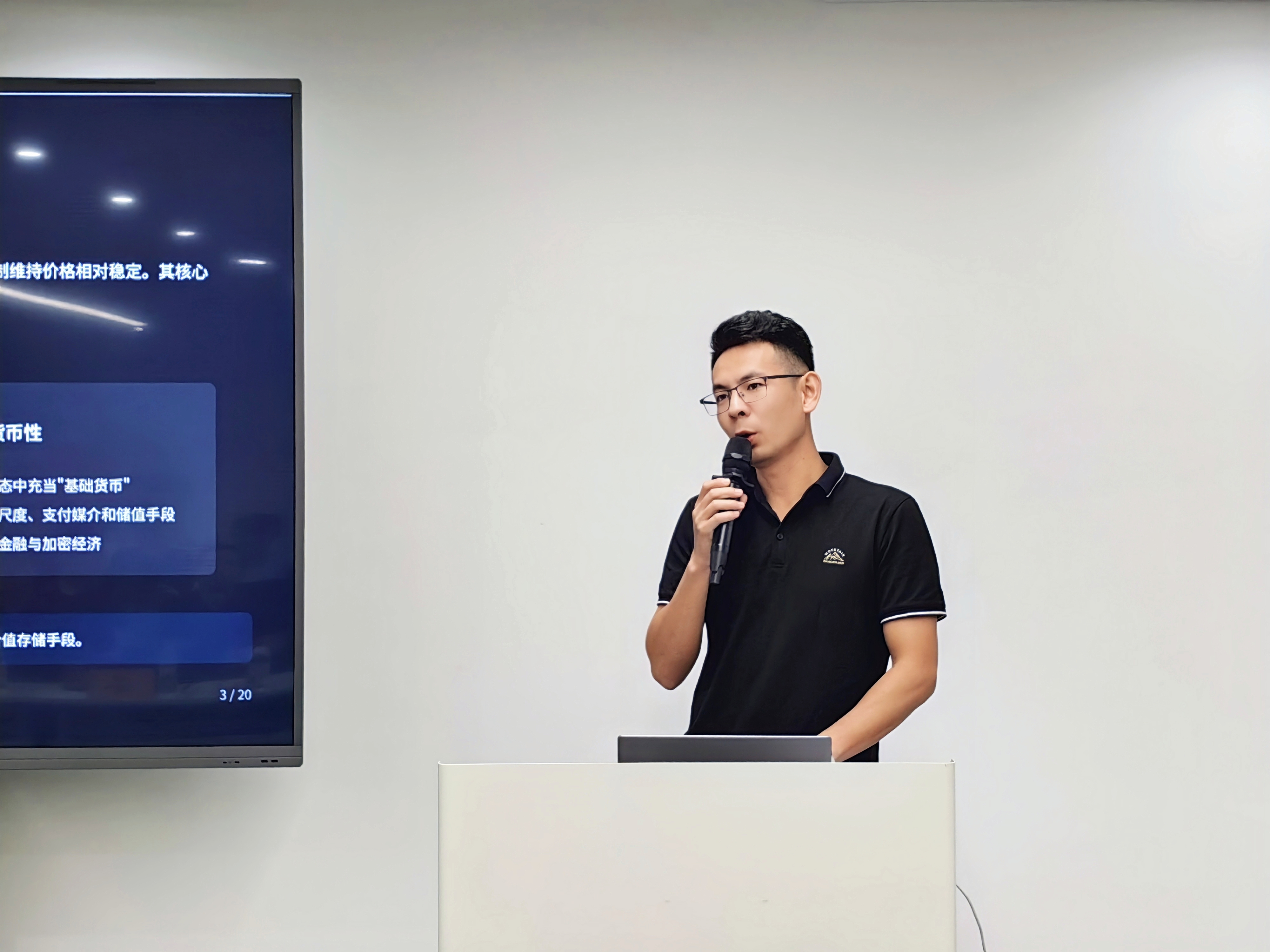
Mankun Law Firm's senior lawyer Mao Jianhao delivered the first keynote speech, analyzing the core logic and compliance pathways of RWA tokenization from a legal compliance perspective. He pointed out that the essence of RWA lies in its dual attributes of "digitalization + programmability," both of which are indispensable. Using BlackRock's BUIDL fund as an example, he detailed its compliance framework and on-chain circulation mechanism, emphasizing that "whitelist mechanisms, redemption processes, and real-time valuation" are the first steps in exploring compliant tokenized funds.
He believes that the future development of RWA will increasingly rely on stablecoins as underlying liquidity tools, and that Hong Kong's stablecoin licensing system will provide a clear compliance framework for this field.
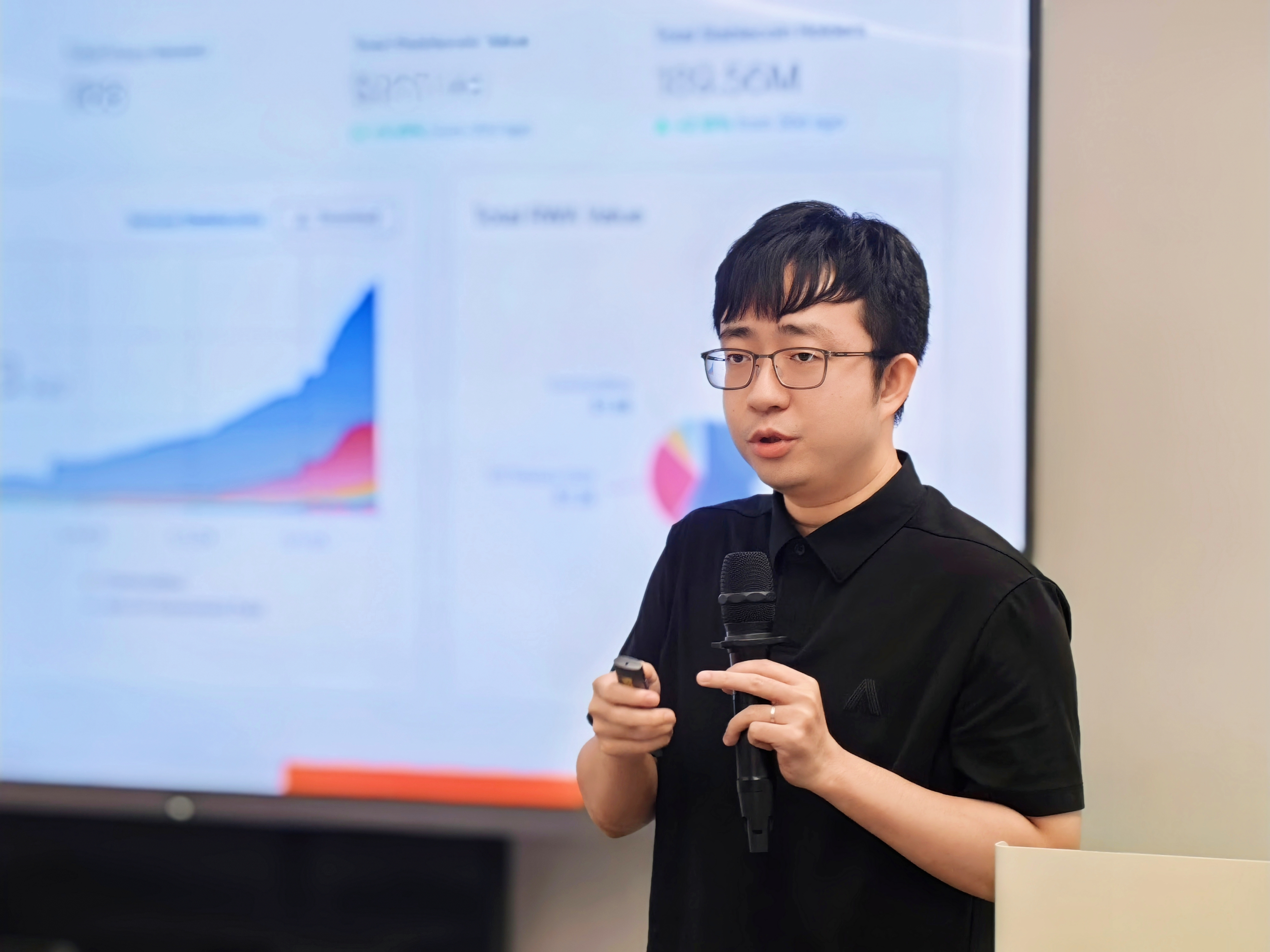
With the rise of stablecoins and RWA, the infrastructure layer for related application development has also begun to flourish. Zhang Yuanjie, co-founder and COO of Conflux, shared the role of domestic public chains in the globalization of stablecoin and RWA businesses from a public chain perspective, emphasizing the key position of the Asia-Pacific region, especially Hong Kong and the mainland market, in the RWA ecosystem.
He also mentioned that the current market driving force for RWA mainly comes from the wealth management needs of stablecoin holders rather than traditional financial institutions, representing a bottom-up process of penetration from the crypto market to traditional finance.
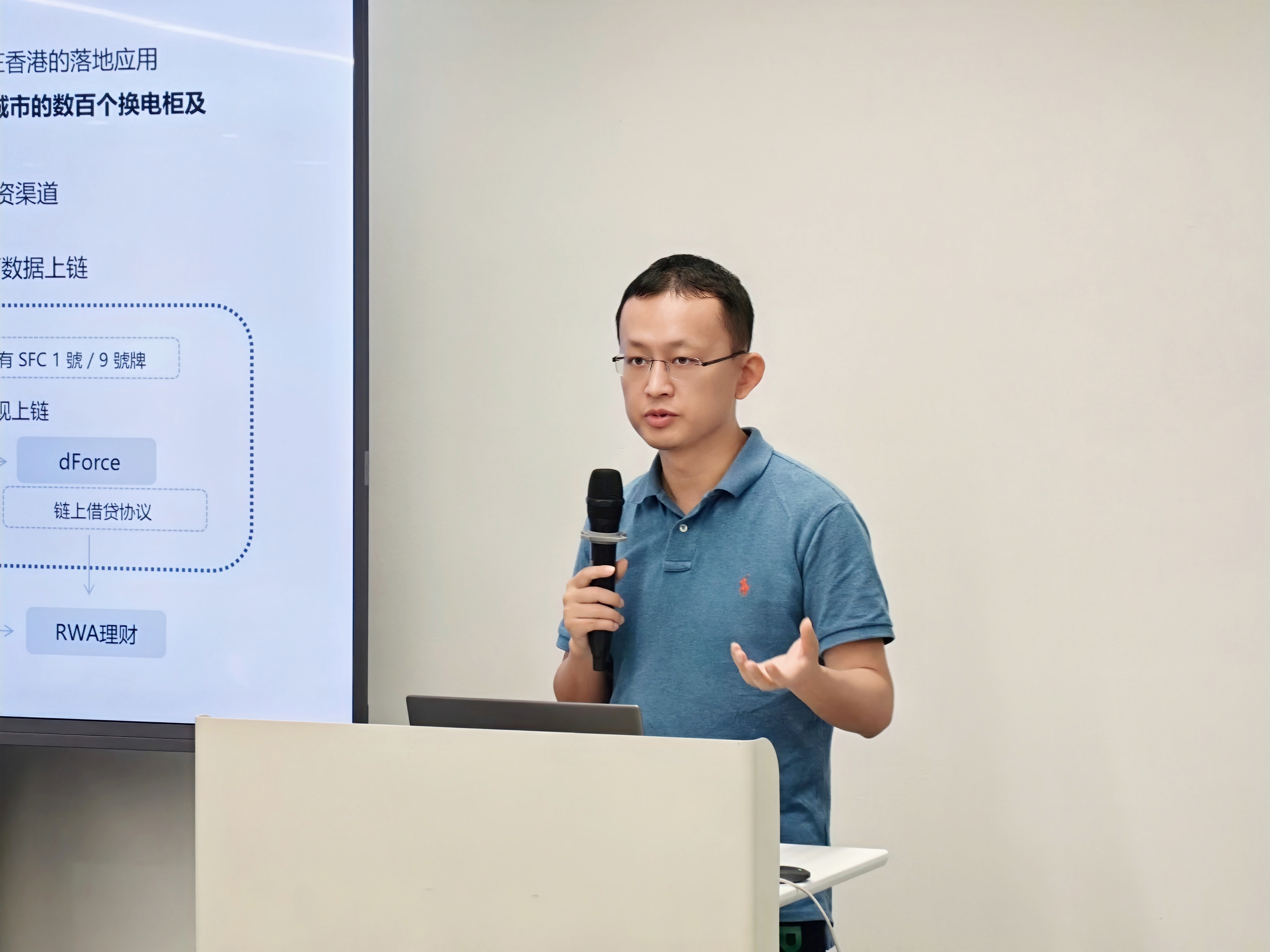
The last speaker in the thematic sharing, Zheng Lijiang, research manager at Shanghai Wanxiang Blockchain Co., pointed out from a monetary theory perspective that stablecoins are not currencies but "quasi-currencies," essentially digital certificates issued by the private sector based on reserves such as government bonds. He further analyzed the differences in stablecoin policies between the United States and Hong Kong, noting that Hong Kong currently emphasizes KYC and anti-money laundering rather than encouraging DeFi nesting.
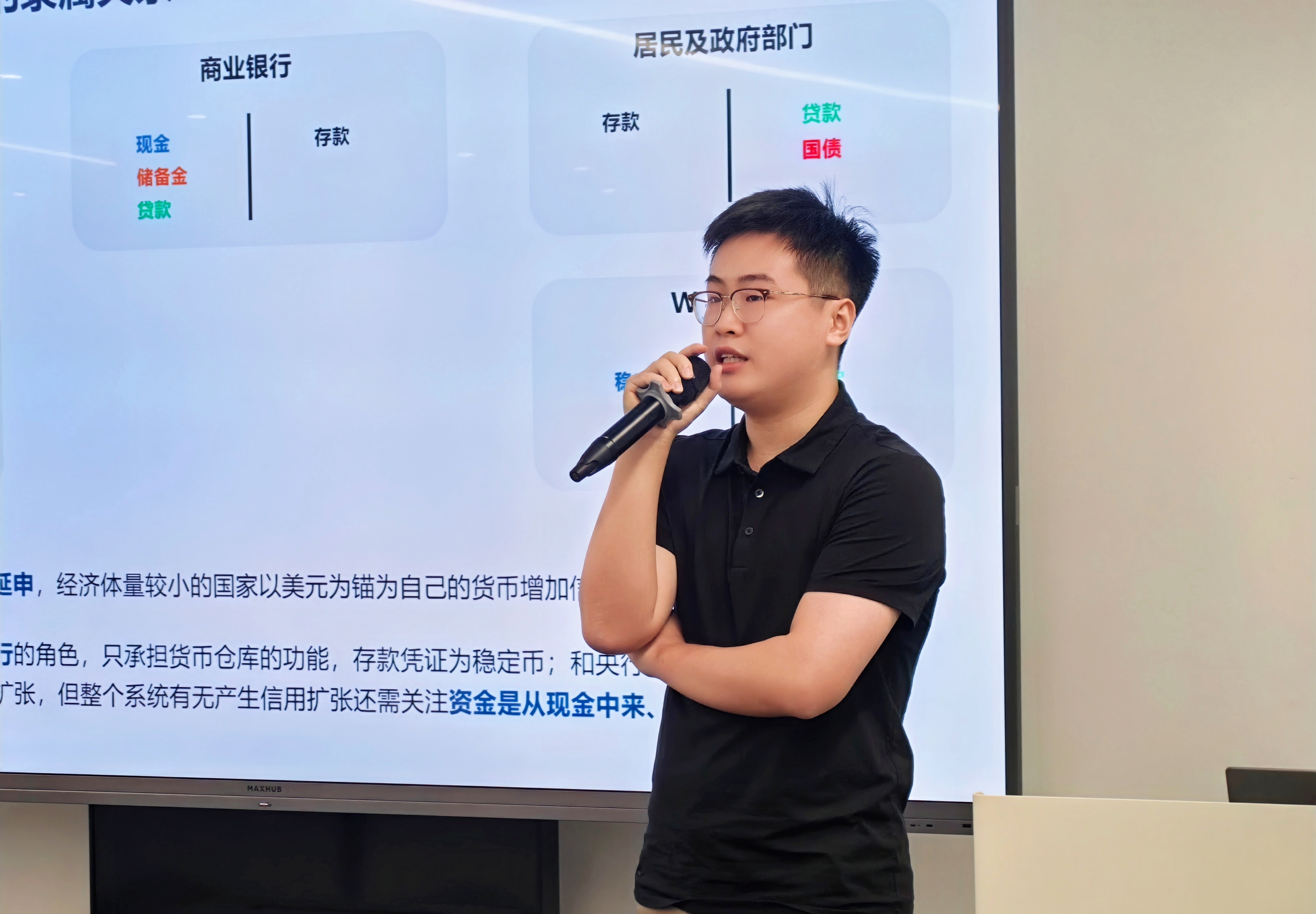
The first topic of the roundtable discussion was "Exploring the Application of Stablecoins in Cross-Border Trade Payments," hosted by senior lawyer Mao Jianhao from Mankun Law Firm, inviting guests such as Erin Du, VP of Zentek, Robert Feng, Deputy Director of Global Institutional Cooperation at KUN, Xu Feng, founder of Coshine, and Derek Wan, BD head of Cobo Payment to engage in discussion.
Zentek VP Erin Du pointed out that there are pain points in cross-border payments such as slow bank reviews, long transaction cycles, and high fees, especially since the financial infrastructure in Southeast Asia is still underdeveloped;
Robert Feng, Deputy Director of Global Institutional Cooperation at KUN, added that the political and financial environments differ greatly between countries, and regions like Latin America and Africa are more likely to accept stablecoins due to their weak financial systems.
Xu Feng, founder of Coshine, shared his experience in connecting Visa's card issuance system for overseas payment institutions, believing that stablecoins have entered a practical stage in B2B scenarios;
Derek Wan, BD head of Cobo Payment, emphasized that security is key to the implementation of stablecoin payments from the perspective of wallets and custody, proposing a one-stop solution with "full custody" and "MPC custody" for the flexibility advantages of cross-border payment companies.
The guests unanimously agreed that stablecoins have moved from "proof of concept" to "scaled attempts" in cross-border payments, but compliance, security, and the participation of financial institutions remain the main challenges.
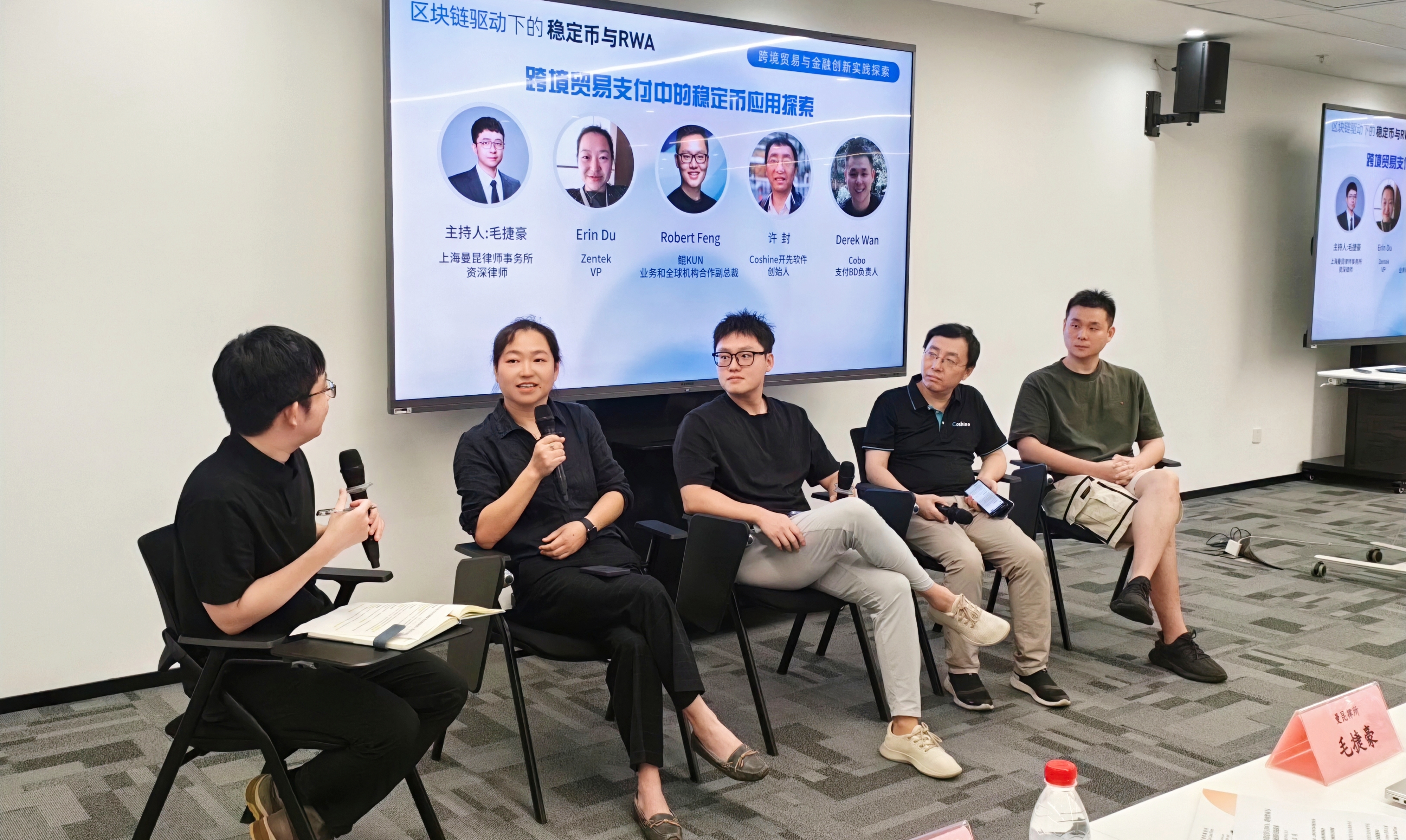
The second roundtable discussion focused on the topic of "Market Dynamics and Application Potential of Stablecoins and RWA," hosted by senior reporter Jae from PANews, with guests including Zhang Yuanjie, co-founder and COO of Conflux, Li Rongbin, Deputy Director of Institutional Business at GF Securities Shanghai Branch, Siya, market head of HashKey Group, and Cheng Yuan, anti-money laundering product expert at CertiK participating in the discussion.
Zhang Yuanjie pointed out that the core driving force behind RWA adoption is the wealth management needs of stablecoin holders, and the integration of DeFi protocols through a dual return model of "underlying asset returns + token incentives" greatly enhances attractiveness;
Li Rongbin, Deputy Director of Institutional Business at GF Securities Shanghai Branch, believes that the enthusiasm of listed companies for RWA partly stems from "market value management," but in the long run, it still needs to return to the quality and liquidity of the assets themselves;
Siya, market head of HashKey Group, stated that 2025 will be the "narrative year for RWA," with factors such as improved regulatory clarity, mature technological infrastructure, and institutional entry driving market explosion;
Cheng Yuan, anti-money laundering product expert at CertiK, emphasized from a compliance and security perspective that RWA projects need to navigate compliance differences across multiple countries and monitor smart contract risks, suggesting that companies carefully consider costs and security.
The guests believe that while RWA has advantages such as "democratized asset access" and "global liquidity," it still faces bottlenecks such as high compliance costs, reliance on Western and European distribution channels, and a scarcity of asset managers.
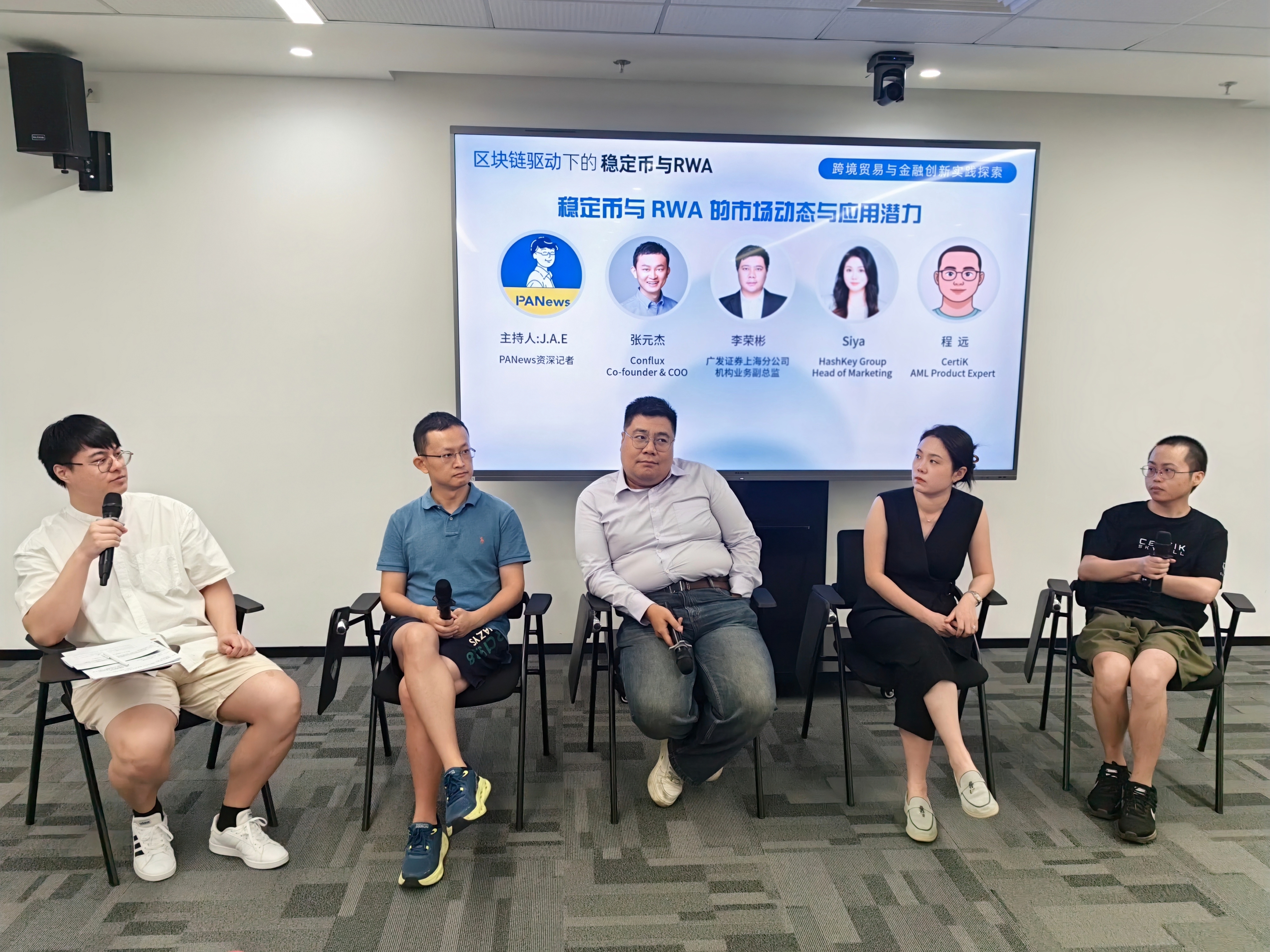
免责声明:本文章仅代表作者个人观点,不代表本平台的立场和观点。本文章仅供信息分享,不构成对任何人的任何投资建议。用户与作者之间的任何争议,与本平台无关。如网页中刊载的文章或图片涉及侵权,请提供相关的权利证明和身份证明发送邮件到support@aicoin.com,本平台相关工作人员将会进行核查。




